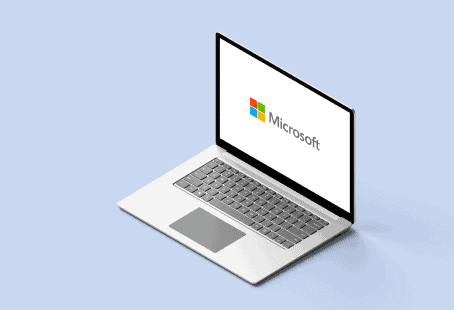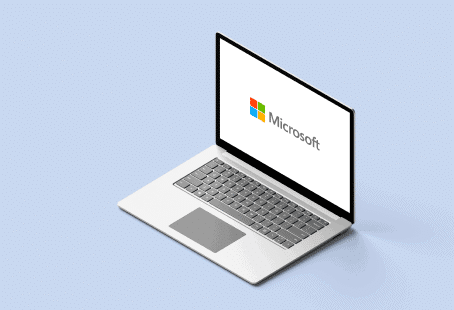Patient portals are essential to modern healthcare, forming a pivotal link between healthcare providers and patients.
As digital storehouses for Personal Health Information (PHI) or health data, patient portals increase patient engagement and streamline operational tasks like scheduling appointments and requesting prescription refills. This streamlining leads to an increase in the overall healthcare outcomes.
| “In an era where data breaches are rampant, a HIPAA-compliant patient portal isn’t just a legal requirement; it’s a patient expectation.” ~Eric Linneman, Director of Cloud Services |
However, due to the confidentiality of sensitive health data that these portals store, there is a strong responsibility for healthcare providers to make their patient portals HIPAA compliant.
HIPAA, or the Health Insurance Portability and Accountability Act in the United States, protects sensitive patient data, a standard to which all healthcare providers must adhere by law. As per Gartner’s research, there has been enormous digitization in the healthcare industry, but there has also been a matching rise in expenditure on cybersecurity solutions. This is because the healthcare industry is particularly vulnerable to ransomware attacks. According to a report by Sophos, 66% of healthcare organizations were hit by ransomware in 2021, up from 34% in 2020.
Cybersecurity solutions that are HIPAA compliant are more likely to succeed in the healthcare industry. Therefore, it is crucial to understand the importance of HIPAA compliance in patient portals so that healthcare companies can work on cybersecurity solutions accordingly.
What You Need to Know for Patient Portal Compliance
When it comes to patient portal compliance, patient trust is more paramount than simply following regulations. HIPAA is the gold standard for safeguarding patient privacy. Therefore, it is essential to understand the “Privacy Rule” under the act, which establishes guidelines for using PHI, and the “Security Rule,” which specifies administrative, physical, and technical safeguards for patient portal compliance.
| Learn even more about the world of healthcare IT with these expert resources: |
Healthcare organizations must administratively establish PHI access procedures and provide staff training to oversee patient portal compliance. Entities are required to physically safeguard all electronic systems, regulate facility access, and handle workstation security. Technically, it is necessary to have audit controls, emergency access protocols, and data encryption in place.
Breach Notification Rules also play a role, requiring prompt reporting of PHI breaches. Failure to adhere to HIPAA regulations results in steep penalties, both financially and in terms of reputation.
Practical Steps to Ensure HIPAA Compliance in Your Patient Portal
The first step in creating a patient portal that complies with HIPAA regulations should be a comprehensive risk analysis by healthcare providers. They must identify and evaluate any possible PHI vulnerabilities and then put security measures in place to lessen the risks. Software must be patched and updated frequently to fend off any emerging risks.
Healthcare providers must use robust user authentication procedures. By confirming that the individual seeking access is authorized, multi-factor authentication, or MFA, provides further security levels to the system. It is also advisable to incorporate automatic log-off mechanisms to stop unauthorized access from unattended devices.
Carve Out a Digital IT Strategy that Captivates and Converts
Buchanan is the comprehensive solution you need.
Encrypted data is guaranteed to remain unreadable even if it is intercepted and not deciphered without a valid key. Additionally, healthcare providers should keep detailed access logs and review them regularly to identify any unusual data use or unauthorized access.
Educating staff about their responsibilities for upholding HIPAA compliance is also essential. Ongoing training on security procedures, breach procedures, and privacy rules should be given. Employees must know the significance of adopting strong passwords and spotting phishing efforts.
Providing a user-friendly interface on the patient portals to encourage patient participation is also important. Consent forms and clear privacy rules should be readily available, and it should be simple for patients to control how their data is used and to understand how their communication preferences are handled.
Lastly, healthcare providers must establish a breach notification process. In case of a breach, have a clear plan for investigation, mitigation, and notification to affected parties within the required timeframe.
Key Steps for HIPAA Compliance in Patient Portals:
| Step | Description | Importance |
| Risk Analysis | Identify and evaluate potential vulnerabilities in handling PHI. | Foundation for creating a secure environment. |
| Staff Training | Regular educational programs on security and privacy rules. | Equips staff with knowledge to prevent breaches. |
| Strong Authentication | Implement multi-factor authentication (MFA) for system access. | Ensures that only authorized users gain access. |
| Data Encryption | Encrypt PHI to protect data integrity and confidentiality. | Keeps patient data unreadable to unauthorized parties. |
| Access Logs | Maintain and review detailed logs of PHI access. | Monitors for unauthorized access and data use. |
| Breach Notification Plan | Establish a procedure for prompt reporting and notification. | Complies with legal requirements and maintains trust. |
Monitoring and Auditing: Ongoing Strategies for Maintaining HIPAA Compliance in Patient Portals
To keep patient portals HIPAA compliant, regular audits and monitoring are necessary. Implementing an audit trail system that records all access and actions taken with PHI leads to a transparent review process. Regular audits can identify trends and patterns that might signal security breaches or non-compliance.
Healthcare providers must use automated systems to monitor security in real time. Administrators can receive alerts from these systems about suspicious activity, like repeated unsuccessful login attempts or unauthorized access attempts.
Antivirus and anti-malware programs that are routinely updated are also essential barriers against online attacks. They must also conduct regular security audits to find new threats and ensure compliance measures are working. These evaluations must be comprehensive, encompassing administrative, technical, and physical safeguards.
Refresher training on HIPAA compliance rules for employees helps prevent unintentional violations. Risk is significantly decreased by a workforce that is alert about safeguarding patient information and has a culture of security awareness.

Ensure You Have a HIPAA-Compliant Portal with Buchanan as Your IT Partner
Having a HIPAA-compliant patient portal is necessary. Buchanan Technologies understands this need and offers a wealth of experience and expertise in the healthcare IT sector. Our services extend beyond setting up secure patient portals; we provide end-to-end solutions for compliance and data protection.
By partnering with Buchanan, you will gain access to advanced monitoring tools to protect your patient portal against ever-evolving cyber threats. We conduct regular compliance audits and provide detailed reports to keep you informed and prepared. Our cybersecurity measures are designed to meet HIPAA regulations, preventing breaches and safeguarding the integrity of patient data.
| Discover our managed IT services with a focus on healthcare IT in these locations: |
Training is a vital aspect of our offering. Buchanan’s educational programs help your team members understand HIPAA best practices, empowering them to play their part in maintaining the security of your patient portal. From encrypting patient communications to securing PHI, our protocols are carefully crafted to align with federal standards.
Buchanan’s commitment to your practice goes beyond compliance. We strive to build trust between you and your patients by assuring them that their health information is in safe hands.
So contact us today and set up a free consultation where we can diagnose your unique IT requirements together.










